Japan Fintech on the rise

When I first e-meet Takeshi Kito in the summer of ‘22, the then Vice-Chair of the Fintech Association of Japan is planning trips to the Singapore Fintech Festival and Hong Kong Fintech Week – the first time that Japan will have lifted post-covid travel testing regulations. As well as networking on behalf of his association, I’m guessing that these were also study trips, because a year later he has steered the first Japan Fintech Festival to a successful launch. His partner in this was Pieter Franken, who we’ll be hearing from shortly. The Fintech Festival was billed as symbolizing, ‘The sunrise in the post pandemic Fintech world: the rise from the pandemic and economic downturn, rise into a new, digital society, rise in the east, and the rise of breakthrough technologies!’ Since that time, Takeshi has moved on, and by the time we update on his activities at the end of 2023, he has left the Fintech Association to co-found Elevandi Japan and devote himself full time to this, along Pieter, and Sopnendu Mohanty of Elevandi.
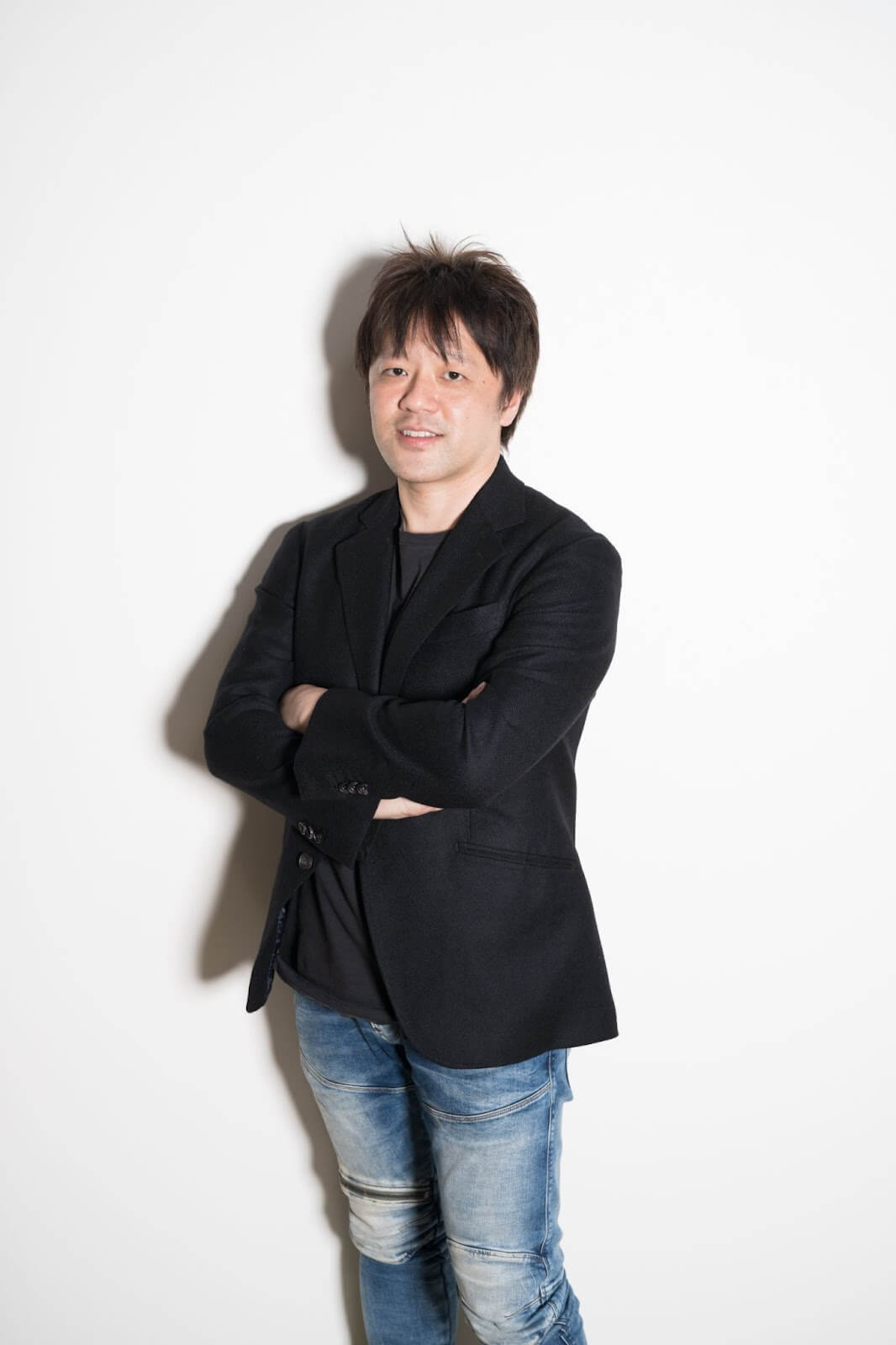
The Japan Fintech Festival wasn’t the first event of its kind of course, but Takeshi outlines why it was necessary to create it. “Okay, so have you heard about the FinSum Conference?” This is a summit in Japan which originated in 2016, the same year that the Singapore Fintech festival began, and both Japan and Singapore have seen the establishment of robust Fintech ecosystems since around that time. “The FinSum conference was originally quite international,” Takeshi explains. “However in various aspects such as Fintech conferences, the number of unicorn companies, and the amount of Fintech investment within the ecosystem, Japan has significantly lagged behind in the past 7-8 years.”
In recognition of this situation, and what the regulator, the Financial Services Agency, wanted to achieve for the future of a Japanese Fintech ecosystem, Takeshi was among those in the Fintech Association who came up with a ‘reverse-engineered’ solution to create a more open and international Fintech conference, much like the Singapore Fintech Festival. However the issue facing Takeshi and Pieter was that the regulator didn’t have the necessary budget for an international conference, so the pair approached media outlets and other potential sponsors to get the project off the ground. Additionally, by leveraging the networks and relationships they have with global Fintech leaders, the new Festival team were able to invite speakers and delegations from around the world, and build the content and community with them. This solution came additionally through partnering with Elevandi, organizers of the Singapore-based Fintech Festival, established in 2016 as ‘an accidental global conference’ and now highly regarded as a leader in Fintech meetings. The Japanese event was to be a truly ‘zero-to-one’ process filled with the entrepreneurial spirit of taking various risks with limited resources. So with a strong collaborator, and deep access to the Japanese Fintech ecosystem, the stage was set for the inaugural Japan Fintech Festival 2023.
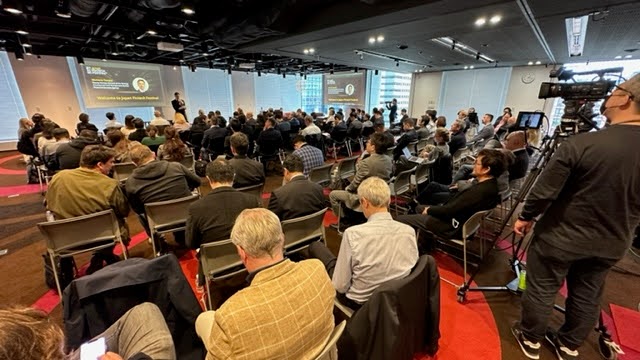
The event went off well and as a result, Takeshi, Pieter and Sopnendu Mohanty – Chief Financial Officer of the Monetary Authority of Singapore – were all set to establish Elevandi Japan, which works with a different, inner circle of CEOs, financial management, and regulators to leverage resources and experience. So there is now a high-level, independent think tank in Japan, plus the Festival, which is open to a much wider pool of startups. And rather than being inward-facing – a tendency of Japanese organizations, according to Takeshi – both the Japan Fintech Festival and Elevandi Japan will be looking to get best-practice input from other countries. “We want to connect the Japanese decision making community with global Fintech leaders and communities, to contribute to global Fintech adoption and growth because there’s only a limited contribution from Japan so far,” says Takeshi. It seems surprising that there is a need for Japan, of all countries, to learn from others in the field of finance and Fintech, but as he points out, “Economically there’s a big agenda. I am just over 40 years old, and from my perspective I have lived through more than 30 years of deflation, with little growth in the market. I have not seen much excitement in economic growth, and everything is stable. We need to go international: I already know the international market and I have many friends in other countries, especially in the startup scene, the tech community, and the Fintech community as well, so I want more Japanese people to collaborate with international stakeholders.” Then there’s geopolitics too: “The world situation is changing and decoupling is going on everywhere, so we must work together, internationally.”
Jumping barriers
But before moving on with the macro, let’s find out a little about Takeshi himself. He is based in Tokyo, but originates from Nagoya, “More a manufacturing city than a financial city,” and famous as the headquarters of Toyota. And finance was his first love? Well, not exactly – there were six years spent at the University of Tokyo, getting a Masters in Architecture, followed by an internship with international architectural engineers Arup. There was also one and a half years during his master’s program during 2005-2007 at Grove International Partners, a Real Estate Private Equity firm, spun off from Soros Real Estate, and now operating as Alpine Grove Partners. From there, on to the Boston Consulting Group from 2007 to 2010. Then getting ever closer to finance, Takeshi moved to Merrill Lynch for four and a half years, as an investment banker, covering the real estate, gaming & lodging industry, and also executing a lot of public REIT IPOs/POs and real estate securitization deals.
2014 saw him establish his own company focusing on state securitization and public offerings for capital markets-based equity, but in 2017 the lure of the Fintech Association of Japan caught his imagination. So he wasn’t a founder then? – No, the Association was started three years prior to Takeshi joining, and was initially just a small meetup with around thirty members. This has grown to include nearly 500 members – all companies – and Fintech Japan was incorporated in September 2015. “The Fintech Association is an ecosystem builder and I’m trying to build the international ecosystem.” Takeshi says, underscoring his work with the Fintech Festival, and Elevandi.
Part of the reason for this is that the Japanese market is still quite domestically centered. “Most Japanese Fintechs are focused on the home market, and getting listed on the Tokyo Stock Exchange. They provide solutions to Japanese companies, financial institutions, and consumers. Japanese investors, venture capitalists or corporate VCs are also mainly interested in investing in Japanese startups. It’s not only Fintech, but all industries in the country including health care and mobility, because Japanese society is very homogeneous, and there are linguistic barriers to outsiders. It makes the Japanese market quite domestic.”
Takeshi weighs the pros and the cons: “Those barriers protect Japanese companies. But of course it makes it more difficult for anyone wanting to go international, because the solutions and company team are optimized for Japanese markets. So they often don’t have enough of a culture of internationalization to facilitate transactions with international companies, or consumers in other countries.”
The builder
Which is why the Japan Fintech Festival’s time has come. I turn to Takeshi’s co-founder of the inaugural event to discover more. But first, I guess you are also wondering a little about Pieter Franken’s personal history. After all, that doesn’t sound like a particularly Japanese name… “I came to Japan in 1987 as part of a student trip to Asia,” says Pieter. “At that time, I was studying computer science and computer architecture,” (at Delft University of Technology). “I was very impressed with all the activity that was happening in Japan, at the peak of the bubble economy, with serious amounts of money being invested in computer technology. And that inspired me because there was so much more happening here compared to Holland. So after my study trip, I got an internship here as a researcher with Matsushita Electric, now known as Panasonic. I was focusing on high performance 3D processing – the real time 3D rendering of objects and movement – and stuff like that.”
Pieter finished his internship and returned to the Netherlands to complete his Masters, but by 1990 was back in Japan working as a researcher for the Hitachi Central Research Lab, in part investigating ‘knowledge engineering’. That’s a subject we now know better as ‘Artificial Intelligence,’ and Pieter was around for some work in the early days of semantic processing.

He’s always been a builder of things however. One teenage interest was designing and building audio gear (a passion that continues to this day, with his own recording studio), so when the opportunity came to build a bank from the ground up, Pieter jumped at this ‘pre-Fintech Fintech’. Citibank in Japan was pioneering a lot of new services, including some for Japan’s many retail foreign-exchange traders, popularly known as ‘Mrs Watanabe’. (The name comes from a fictitious housewife, margin-trading on her laptop at the kitchen table, in case you were wondering). Citibank’s Mrs Watanabe operated 24/7, and opened the way for many other all-hours services. Pieter’s team also had the first internet banking capabilities in Japan, and tied the bank into the national postal network, using a lot of new technologies. It was close to eight years of continuous innovation, until 2000, when Pieter got the call to instigate what was, “Probably the largest digital transformation in Japan, even today.” A long term Japanese credit bank had gone bankrupt the previous year, and now a team of mainly American investors bought the remains from the Japanese government, setting up what would become the SBI Shinsei Bank… with Chief Technology Officer, Pieter Franken. Actually, Pieter reflects, that title didn’t exist back in the day, but that’s what he was tasked with.
Machines don’t care about weekends
“We needed to grow at hyperspeed, we needed to rebuild the entire bank. So we took it to the next level in terms of services, but also technology wise – we moved much further than anybody else. At that time we were the first bank – and probably the only bank ever – that completely ran on Windows as an operating system. We removed all our mainframes, and it was a very homogeneous environment. Probably now you would call it an internal cloud.
So we built a retail bank in one year, restructured the entire corporate bank, and built an investment bank on top of that as well. We pioneered a lot of new things like Customer Relationship Management, and 24/7 foreign exchange capabilities, without any humans involved. We removed a lot of things from the bank’s operating departments that people were normally doing. We were also the first bank to be 100% paperless.” Pieter pauses for a moment and laughs, “And also probably the last one! I don’t think anyone has ever achieved the level of completely paperless operations.”
The revitalized bank was also the first to offer mortgages with no need for any branch interaction. This was over the public internet, after all leased telephone lines had been ‘ripped out’ out from the bank. Pieter is also proud of the fact that Shinsei was the first bank in Japan to remove the concept of batch processing, “I think most banks still have it, but they don’t actually know why they have it.”
He explains that it comes from the mainframe period of ancient history, when processing in batches had to be done because the machines couldn’t keep up. Today there is still online and offline media, even with new technologies: “That doesn’t make any sense, but people still do it. It’s kind of a bad habit, so to speak.” Shinsei Bank also pioneered weekend banking, “Because obviously machines don’t care about weekends,” as well as cashless branches, ATMs, and the rapid issuing of cards.
By now you’re probably getting the message that Pieter has quite the pedigree. So the next step was linking up with Takeshi Kito and creating the Japan Fintech Festival? Well, no, but at this point let’s also check in with a third highly significant figure on the Japanese Fintech scene. In fact he’s so significant that he is often referred to as, ‘The Father of Japanese Fintech.’
The Father of Japanese Fintech
It’s an accolade which Makoto Shibata shrugs off with what seems like characteristic modesty. “It’s too much to call me that. I wrote the first article in an industry magazine to introduce what Fintech was, and its impact on financial institutions and the startup community. I had some advantages from observing what was happening throughout the world – especially in the US and the UK – and I managed to let people know about that. So I acted as an evangelist: I didn’t create Fintech in Japan, but I was a sort of messenger.” During his undergraduate days at the University of Tokyo, Makoto also studied at Harvard for one year, focusing on Development Economics, particularly for developing countries. On graduation he joined the Bank of Tokyo, in part because it was one of the most internationally-oriented banks in Japan, with sizeable loans to the developing world (and a lot of ‘troubled loans’ in South America, as it happens).
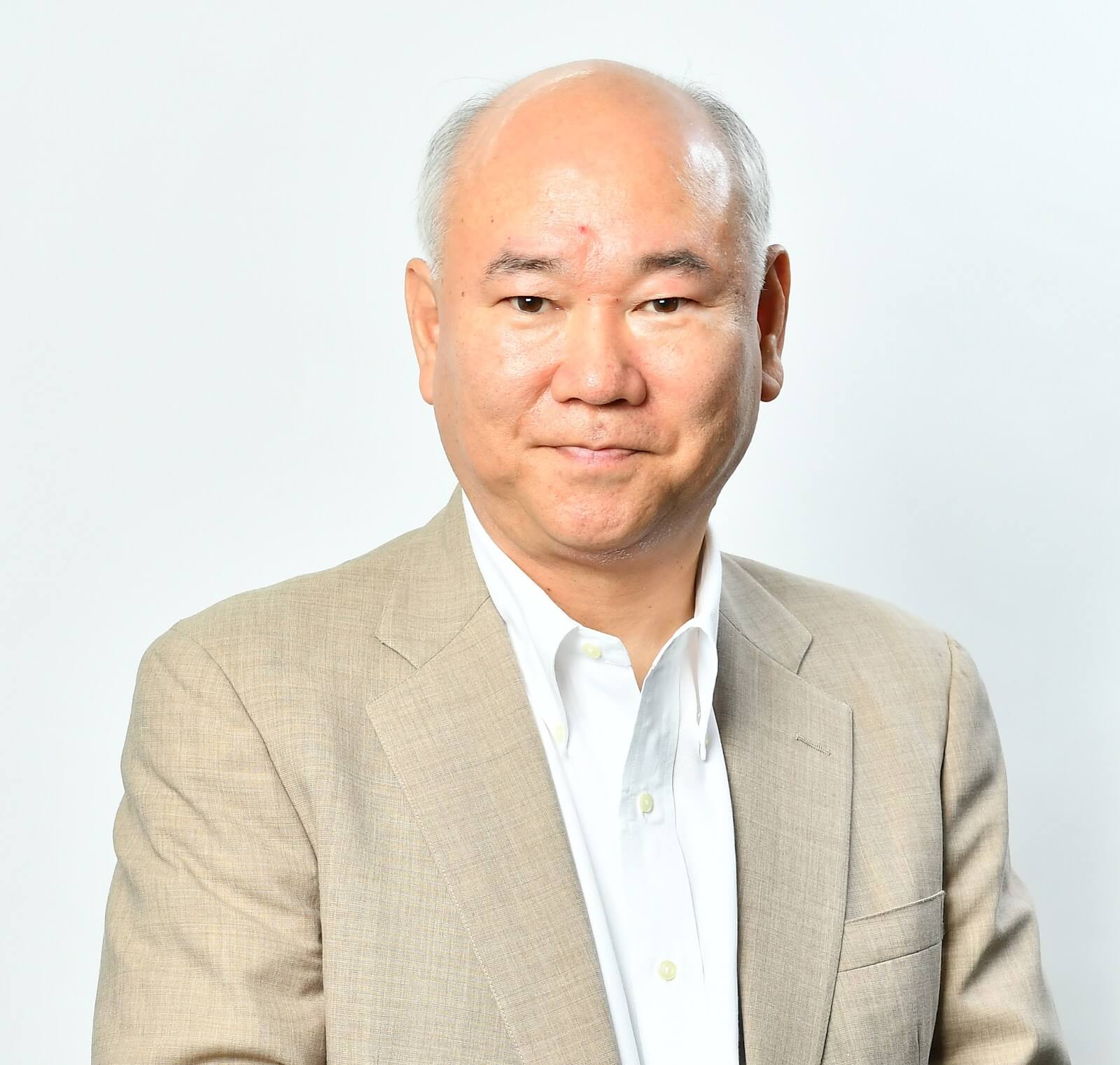
When the opportunity arose to study for a Master’s degree in Economic Development at Oxford University, Makoto was allowed to spend two years there by the bank, returning to corporate planning later as it was merging with Mitsubishi Bank, to become Bank of Tokyo Mitsubishi (now known as MUFG Bank). The merger required many different systems to be integrated and harmonized – even down to how profits were measured across different departments. The newly-returned Oxford postgraduate had plenty of work to do in the rapidly developing digital banking area, which regularly seemed to change its name: from the e-commerce division, through the eBusiness & IT Initiatives division, Digital Innovation division, and Digital Transformation division. It was a lot of change which utilized emerging technologies to transform banking, and all of which Shibata san was deeply involved in: “I would see what new technologies were coming out, and also what other banks were doing throughout the world, and try to promote new projects to bring in the new ideas or emerging technology. And once we’d tried these out on a small scale – and if people were happy with the result – then it would be turned into a real project and we would hand it over to a line of business to implement the solution.”
As a result, he had opportunities to travel the world, looking for new initiatives, “And in due course we started to think we needed to have someone on the ground in different locations. So we created Global Innovation Offices in Silicon Valley, Singapore and London. I initiated setting up the offices – and was hoping to work in one of them – but I remained in Tokyo to control overall activities.”
It’s typical that in the Japanese financial services area people continue to work in one place for a long time – stability is very important – but within an institution job rotation every three to five years is also a feature: “So, it was an accident that I continued to stay in this area, probably because of the merger, and that the typical career path was changed. And also the fact that I had some knowledge of economics and finance, and some command of languages, so I was able to go to different places to learn about new things – not just technology, but also how business had been developing as a result of these new technological changes.”
I notice again a characteristic modesty about ‘some knowledge’ of economics, and ‘some command’ of languages!
Enter Fintech
With an illustrious career in banking well established, Makoto was to some extent primed to work for a few more years and then retire, but by then he’d been attracted to Fintech and the startup world, and his role as ‘The Father of Fintech’ was about to become apparent. He founded a mentoring group called Finnovators to support startups. It was part of the newly-established FINOLAB, begun in 2016, and was at first ‘more like a club’ than a business. There was no legal entity, but it became an increasingly solid organization – space was found on a floor of the old Bankers Association building, which was being renovated – and within one year membership was increasing. Financial institutions were also showing increasing interest in joining, and by 2019 FINOLAB Incorporated had become a fully legal entity, with Makoto as part of the management. In the beginning his work with Finnovators had been ‘on the sidelines’ as a pro-bono member of an advisory group of bankers, lawyers, technical experts, venture capitalists and regulators. Now, permanently residing in the Otemachi building in Tokyo, FINOLAB states that: ‘Financial services provide the foundation of our daily life, with payment, mortgage, wealth management, etc. Let’s create the infrastructure, environment, and ecosystem in Japan to produce Financial Innovation that’s the best in the world. Promising FinTech startups and stakeholders gathered to make this wish come true.’ It seems that Makoto’s retirement will be somewhat delayed.

The regulator dives into the ecosystem
I’m interested in the mention of regulators, and wonder if they had to be pulled or pushed to become a part of the ecosystem. Makoto observes that it did take a while to bring regulators into the community, but now the Financial Services Agency is a FINOLAB member, as of 2021. That was a big achievement, as the FSA were known to be inherently conservative and – of course – risk averse. Makoto reflects how in his days as a banker it was always ‘awkward’ to reach the regulator, especially to broach the emerging subject of Fintech. That has changed however. The Japan FSA paid attention to what other regulators were doing – in the UK and Singapore for instance – where the authorities were not merely regulating Fintech activity, but actually promoting it. Nowadays there is a specific Fintech department within the Japanese regulator, and there will soon be a Fintech Support Desk which startups can consult. Startups have nevertheless often not dared approach the FSA because of its perceived rigidity, but that is changing, and as a member of FINOLAB the regulator is now coming to the startups. “So it’s healthy progress, but it took us a while to make this happen,” Makoto observes.
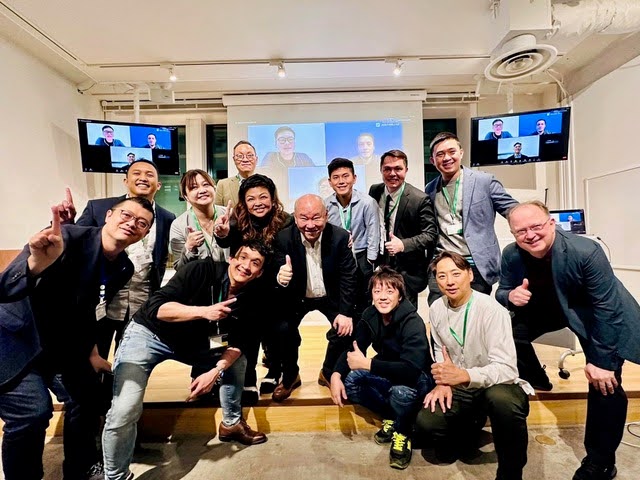
Booming or plateauing?
He admits that from the start the FINOLAB office was to some extent modelled on other successful Fintech organizations, citing the Level 39 initiative in London, which has a strong relationship with the UK’s Financial Conduct Authority. The Australian Stone and Chalk startup hub, and Singapore’s Robinson Road (80RR) also provided inspiration. “I think it is important to have good relations for the same industry groups in the incubator or acceleration office, which can create the physical community.” The relationship with other Fintech Associations is fruitful, especially with connections to Korea, Taiwan, Singapore, Malaysia, Philippines, Indonesia, Thailand – so almost all the ASEAN countries. There are also close ties to Hong Kong, although less so with China.
FINOLAB also took part in UK Fintech Week ‘23, and increasingly Nordic companies promote their startups in Japan, using their embassies to set up connections. Governments including those of the USA, Canada and Australia are also actively engaging with Japanese Fintech.
It sounds like boomtime for Japan – Is that true, or are things plateauing? “Yes to some extent things are flattening, but we’ve seen many ups and downs in the IT world – not just in Fintech – but also big ups and downs in the crypto world. We saw the big boom in crypto and then we’ve also been experiencing the crypto winter. It’s a cycle. Also, in terms of IT investment, we saw the big internet boom of the early 2000s. Fintech was the buzzword in 2015 and 2016 with many venture funds trying to use this to get investment and create excitement. The valuation of some Fintech startups went up, but if we think about the overall financial industry, technology has always been an integral part of financial services. So maybe a certain element of investing that went into Fintech has decreased a little bit, but many financial institutions are looking at technology as an integral part of moving to their next stage.”
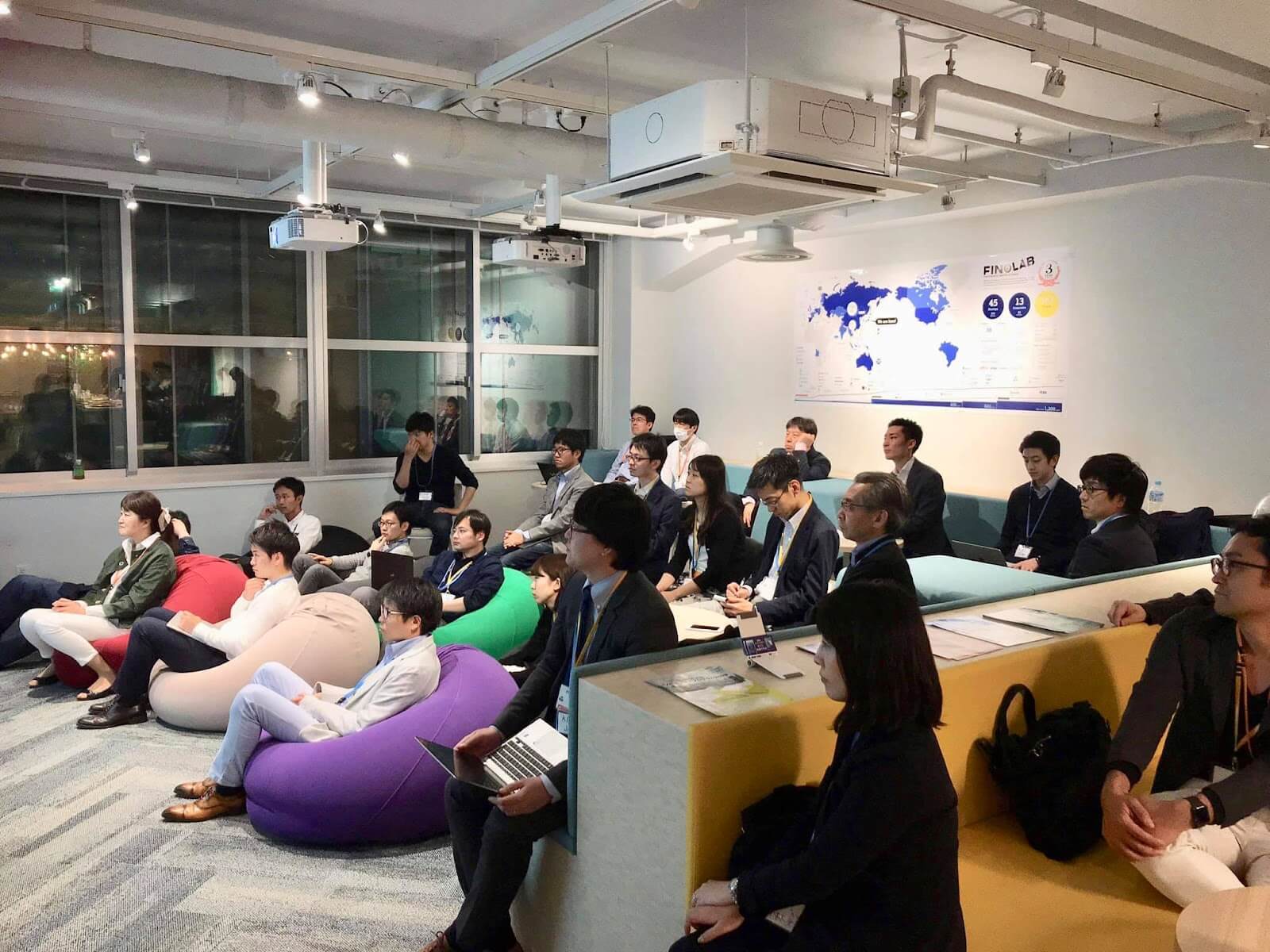
As with many other Fintech leaders I have spoken to, Makoto sees the covid pandemic as having been a clarion call to many organizations to get their act together in terms of transforming their business digitally. Banking customers didn’t want to visit branches, or even use ATMs, and of course staff often worked from home. Banks realized that digital transformation could no longer be put off, which meant closer awareness and working with Fintechs. One clear change has come in the demand for improved UI-UX and better customer interfaces, “Many financial institutions are shifting their budgets from conventional banking to brand spanking new digital-based banking,” says Makoto. “So I’m not pessimistic about Fintech. Maybe the word ‘Fintech’ might gradually change and technology will really be integral to our lives. People will no longer think about the technology, and we cannot avoid having digital elements to conduct financial transactions.”
Financial inclusion and exclusion
At this point in his career, Pieter Franken – like Makoto Shibata – might have been considering the end-game of bowing out gracefully from banking activities. Far from it, as the co-founder of the Japan Fintech Festival resumes telling his own story: “It would be nice to say I joined Citibank and then I just retired, and that was that. But fortunately, I have done a few other things. Initially these were in the corporate experience – innovating within the boundaries of large organizations, and always in regulated industries. But more recently, going more into the world of Fintech startups and innovation.” This in turn has led to Pieter’s increasing interest in the space of financial inclusion, where he says that banking has as yet not been so successful. “I decided not to do more career work, and become bigger and wealthier. Instead, I wanted to take all the unique lessons I’ve learned throughout my life and apply them to areas where it is more needed than anywhere else. So that’s the more recent way to look at my journey.”
He explains that while ‘financial inclusion and exclusion’ can be somewhat fuzzy terms, he regards them as being about providing more comprehensive access to banking services. OK, the baseline to address is people with no banking services, but limited financial access is also an issue, particularly in the area of loans: “In order to lend to somebody, they need to have some credit history or at least you need to know something about the person. In many cases there are no IDs, there’s nothing. So actually, financial inclusion tends to focus on the challenges of the identity of people. How do you lend to people who you have only very limited information about, and how can you find complementary information? Also, how do you bridge the gaps between the physical and the virtual worlds of cash?” He says that people who are financially excluded typically use cash a lot, “But how to bridge those gaps is the territory of financial inclusion.”
Digitalizing the smaller banks
Pieter’s answer has been to focus on enabling smaller banks to go digital, which he sees as the only way to achieve true financial inclusion for large numbers of people. In many developing countries there may be thousands of small banks, mostly brick-and-mortar based, some with as few as 10,000 customers, through to millions. They can’t scale up, or scale out, and they certainly don’t have the resources to create customized digital solutions. These banks, and local credit associations, are a vital part of communities, lending to small businesses and farmers. “But you can’t do this from an ivory tower,” Pieter stresses. “It has to be from the ground up.”
And this applies to Japan too? I ask. Pieter laughs: No, Japan doesn’t have any such problem. But he does pick up on the logic – or lack of it – as to what qualifies as a ‘developing country.’ Take the United States, he says. There 25% of the population are either unbanked, or underbanked. OK, he says it’s a lot to do with immigration, but it’s still a staggering number for the world’s biggest economy. The USA is not his focus however. Rather he works to help ‘the developing south of our planet’ in Asia, Africa, and Latin America, where there are great needs and opportunities, and where technology can play a key role. The problem is that while the technology has been in place for a while now, it is not really happening. “It’s hard for small institutions to go where the big incumbents can go with their money. How do we do this? – Put a small amount of money in, and work to break down the regulatory concerns. And that’s kind of where I am right now.”
Enabling technologies
The answers to these thorny problems come in multiple technologies, according to Pieter. Blockchain, for example, can be an enabler but not a necessity. Digital currencies may play a role but also aren’t essential. Cloud access is very important for banks to quickly build their infrastructure, and in many countries mobile technology is the lifeline for all communications. All of these technologies are available now, Pieter says: It’s what the big banks have been able to use for a long time, but now the technical and non-tech hurdles (such as regulation) also have to be dealt with for small banks.
And seeing as he started his career as a researcher into AI before it even was even called AI, does Pieter also regard that as an enabling technology? After all, it’s new to everyone, whether an incumbent bank or local credit association. He predicts that it will have far greater impact than blockchain, and create new opportunities for companies to do things that were impossible to date. “I think AI is probably similar to the internet as a technology, in that it is very broadly applicable. It is not a single thing. It’s not just Chat GPT – which is the most visible and biggest breakthrough right now – it is a number of technologies that can be bundled together to do things. It is very important to make sure that we set up frameworks around it so that these technologies are not used against people. But the way I see it, there’s many things that we can augment. Maybe ‘Augmented Intelligence’ is a better description than Artificial Intelligence. But the bigger question is, what is intelligence? You know, what are we teaching kids? If it is things that you can just get by the press of a button, is that really what we should be spending time on?”
That’s a wide philosophical question, but in the financial industry Pieter comments that here AI will have a lot of impact too. He enumerates applications such as high frequency trading (which is already done by machines), and customer service. Again this is an area where the bots are already deeply embedded, but AI will make the customer experience more seamless, and effective. AI-based data analytics are also the coming thing, enabling better, quicker and more efficient credit assessments, for example.
So the machines are taking over? Pieter smiles at the notion of Augmented Intelligence being in charge: “Go out into the street and ask people a few questions. I guarantee that ChatGPT will produce ‘better’ answers than the average human.”
We roam on in our conversation through the effects of AI on art, music, society, and mathematics, and it’s clear that Pieter Franken thinks things through. He sums up the newest of new technologies by saying, “When I talk to other AI experts and people I work with, we all agree that this is definitely a breakthrough moment. This will have a visible impact on society and it will be interesting to see how it goes. I’m working with regulators and we’re talking about frameworks and ideas of how to guide it better. At the same time, we shouldn’t kill it either. Right?”
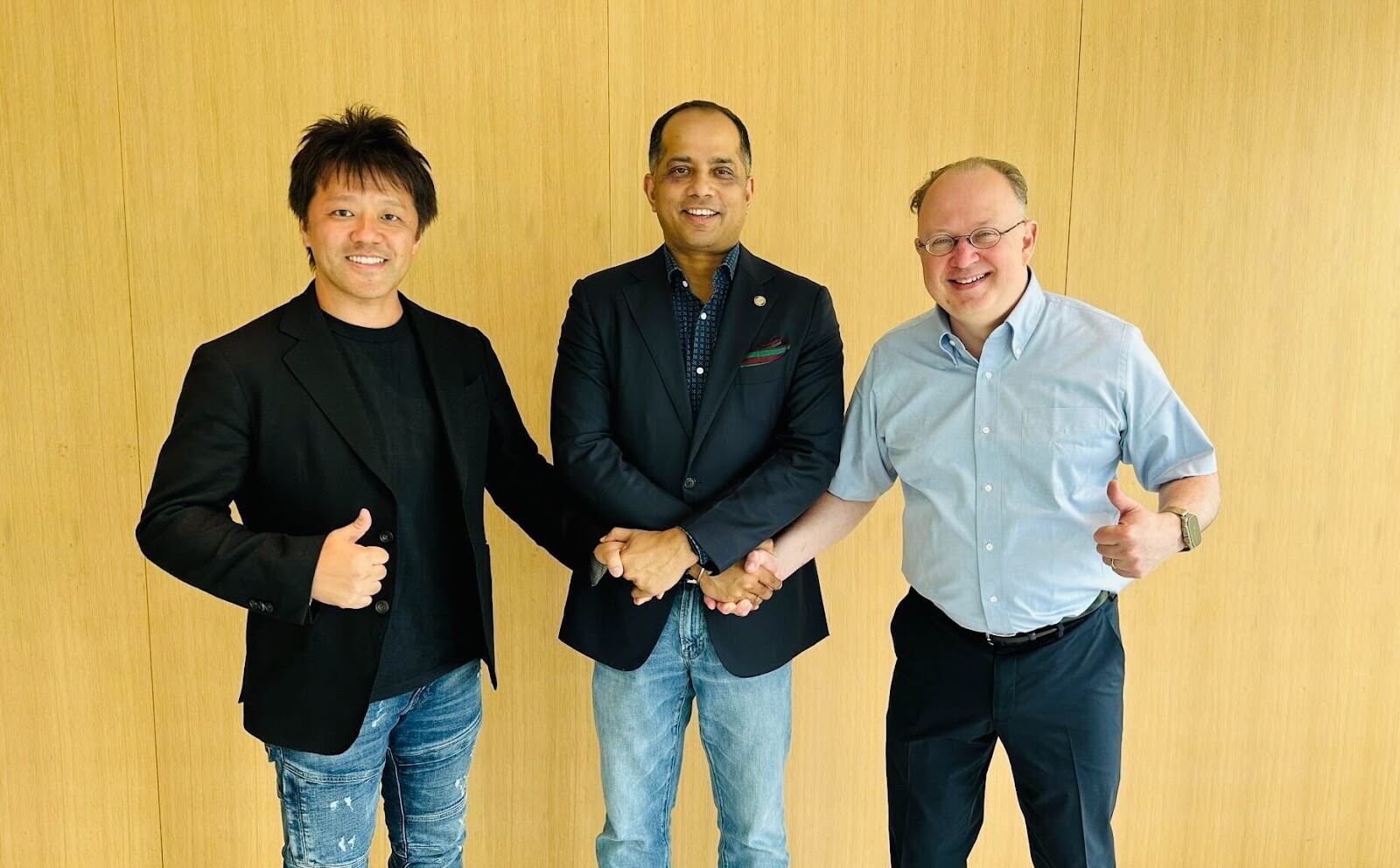
Building skyscrapers
Takeshi Kito is of course also aware of, and involved in technological trends, but rather more from a user’s perspective. His take on UX in Japan is that the country is behind the curve, partly because of the insularity of the markets which tend to look inwards (something the Fintech Association has been working hard to address). Given the economic size of Japan, he says that it should be making a greater contribution to the development of the global Fintech ecosystem. There’s too much reliance and comfort in continuing to use legacy systems, instead of working on better UX solutions.
He gives as an example the government initiated project to update the social security system. Takeshi has personally fallen foul of this, having had his Social Security number connected to another person’s profile (although he personally didn’t suffer any damage from this). But he was far from the only one to be affected and there’s been ‘a huge argument’ between the government and the public over this. There were over 100,000 cases where accounts, registered under the owner’s family members’ name, were linked to public money receipt accounts associated with the My Number social security system, used by the government for various benefits.That’s not the sort of situation we’re led to believe happens in the smoothly running society of Japan, as viewed by outsiders.
He also sees a limited ability in Japanese software engineering, compared to many other countries. Perhaps drawing on his background as an architect, he likens this to having many great carpenters available (in other words, programmers), but with few architectural skills to direct them. “We have the building skills, but without the architects we can’t build skyscrapers,” he says. Skyscrapers being the large scale and internationally-oriented projects that he regards as essential to grow from the thirty sluggish years he has observed.
Of particular importance, in Takeshi’s opinion, is the advent of Web3 where, “We simply don’t have enough talents, companies, or initiatives or risk capital in place.”
Although this may sound a little doomy, Takeshi does mention that his new partner from Elevandi, Sopnendu Mohanty, pointed out some great cultural strengths that Japan does have: Its resilience, stability, and consumer and investor protection. There is also huge value placed on trust. “So these are core things we can provide to the global market,” Takeshi says. And always looking outward, he adds that for the Japan Fintech Festival 2024, there will be more insights into these values, with even more inspiration on tap.
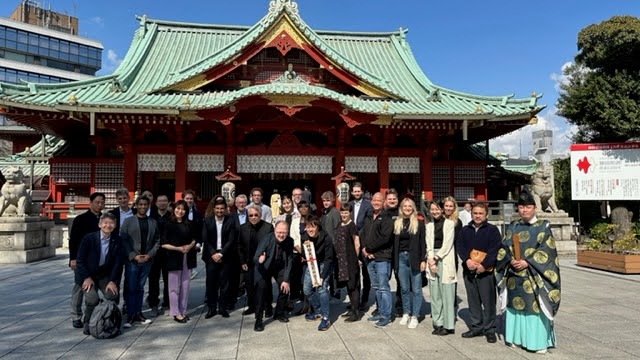
The expanding frontiers of Fintech
So, a familiar question for Makoto Shibata: Is everything Fintech now, and has he won the argument? He thinks this over and agrees that to some extent it’s true, everything is Fintech. “In the beginning, we thought about Fintech as payments, or digital lending, or asset management using digital technology. But now the frontiers of Fintech have expanded. We are seeing more startups coming into ESG (Environmental and Social Governance) or SDG, (Sustainable Development Goals), and they can also be described as Fintech companies. There are b2b startups that are expanding, while in the beginning we saw more consumer oriented companies in the area. Now there are also more veterans of financial services coming into the startup world, to support existing financial institutions to digitally transform their business. So I think the landscape of Fintech is changing, and maybe it’s true that every part of the financial service or financial industry has become technology oriented.”
Which also brings us to the subject of AI. What’s Makoto’s take there?
He sees that AI will require a different set of skills to use and develop, but that it will radically alter the financial industry. There will be increased efficiencies using AI, and some advances in customer communication, but he doesn’t yet see fundamental human communication being replaced. Yes, bank tellers and bank clerks are already a threatened species, and some banks are trying to slow down the speed of change, while others are keen to progress. He says that the question that technological change is happening and will continue to happen is not really up for discussion – it’s a fact of life. The real question is how to make those changes subtle.
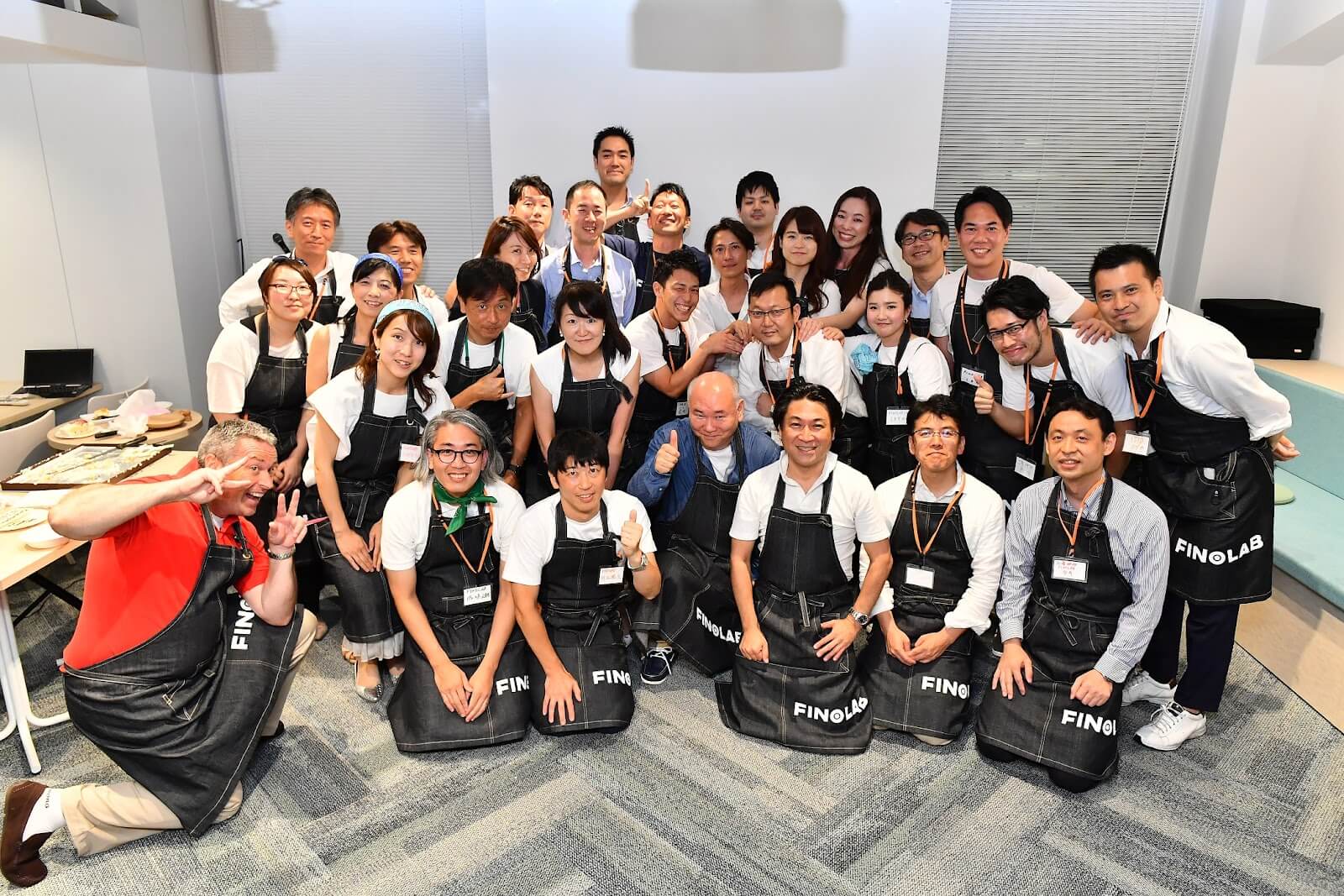
That leads to a question about gamification – probably the least subtle of approaches – and where that fits into developments in Fintech. It’s something Makoto has some experience of, having tried different approaches in his digital banking days, such as a game which encouraged walking by earning points. The goal – at the time – was to get more visitors to the bank branches or ATMs, and to attract younger people, but the intention of making financial life more interesting or amusing wasn’t really achieved. Rather than using gamification as a ‘teaser’ to attract users, he does see a good fit between online gaming and the payments industry, and that financial services and gaming may be increasingly merged. He admits that cutting edge developments in this area will surely come from younger and more gamification-oriented designers and developers, but he has recently tried out augmented reality, and was impressed by the leaps in technology. Instead of many separate screens on a trading desk, AR glasses are now available to engage in transactions, which will definitely change the way financial work is done.
The Japanese demographic
Cutting edge solutions are not the province of many older Japanese citizens, says Takeshi Kito. People in their 70s are set in their ways, and Japan is without doubt an ageing society, so it’s down to the younger generations to explore new solutions. “Generally speaking consumers need frictionless, better user experiences in all financial transactions. But at the moment, current financial solutions in Japan are not good enough in terms of user experience. In Japan, we are still a cash based society, and so we face many, many pain points in the area of payments. We are not yet a digitized society.”
In comparison to the European financial industry Takeshi feels that Japan has a way to go to catch up. “They have a passporting framework and countries are well connected with other countries in the region, but in the APAC (Asia Pacific) region, there’s no framework for passporting. So, the markets and legislative frameworks are very fragmented. The standards here are different from the investment ecosystem in the United States, the UK and other international ecosystems, and we are also facing a lack of talent, and a shortage of entrepreneurs, and engineers. We don’t have enough of them.” The Fintech Association is involved in education initiatives, with meetups and seminars in universities to explain what’s going on in the industry and what kind of technologies are hot in the current market. Included is an exploration of the role model of being an entrepreneur in the financial industry.
Speaking of which, what’s the gender balance in Japanese Fintech? Well, not dissimilar to many countries it seems: “We are facing a lack of women entrepreneurs and engineers, because the traditional financial industry also faces the same situation, as does the tech industry, and the investment industry. Men establish startups and their employees are men.”
Taking a sabbatical break…
Trying to keep pace with the twists and turns of Pieter Franken’s career would require an article in itself, but stepping outside his progression as a banking technologist and Fintecher, it’s worth a short diversion into some other fields. Having worked in ‘Pre-Fintech Fintech’, assisting small companies that are now major players, Pieter began considering taking a break, and maybe indulging his interest in scuba diving. “Two months into my sabbatical, the earthquake happened here on March 11, 2011. My whole family lives in the north of Japan, and the city my wife is from was in the center of the tsunami. I got involved in doing something about the Fukushima nuclear disaster because the nuclear plant is in between my wife’s hometown, and Tokyo, where we live.”
The ‘something’ that Pieter did was establish a project, the Safecast citizen-science network, to measure radiation levels around Fukushima, which has since collected and published over 200 million environmental measurements into the public domain, with Safecast’s activity expanding to include air quality monitoring and climate change impacts. The much broader remit includes – sadly Pieter says – activity in Ukraine. “We use a methodology which we call centralized data, where multiple people measure independently, not knowing what the other people are doing, and measuring whatever they want to measure. There is no bias in the way data is measured, and people validate each other. That creates a high level of trust in the data, which is really what matters, right? Some people say that data is the new oil, but I say that trusted data is the new oil. Data, we have plenty of, and if you follow ChatGPT and so on, it’s clearly becoming more about the quality of the data than just having a lot of it.”
At the same time as founding and steering Safecast, Pieter was also using his sabbatical ‘time off’ to work as CTO for Monex Group during its crucial acquisition of the US index futures Tradestation, which, “Is well known among more advanced individual traders, because of algorithmic trading and trading automation. So it’s a really advanced platform, and we brought that company to Japan.” Pieter recounts how Monex had originally outsourced most of its technology to a third party, but that he was then involved in, “A kind of reverse insourcing structure, to regain control of the technology.”
And then there were his increasing connections to the Singapore Fintech scene, especially through Sopnendu Mohanty, which resulted in the establishment in 2016 of the globally-respected Singapore Fintech Festival, ‘Where Policy, Finance and Technology Meet’. The November ‘22 Festival saw 60,000 people attending, and the success of this led directly to the first Japan Fintech Festival. Since then there are also new festivals being launched for Switzerland and in Africa, under the Elevandi umbrella.
Oh, and just in case you think that Pieter was taking it easy during this whole period, he was also instrumental in assisting a rural bank in the Philippines on its digital journey, and helping another bank there build and scale really quickly into a Neobank!

Moving to a better time
What is clear from the interlinked stories of Pieter Franken, Taleshi Kito, and the ‘Father of Fintech’ Makoto Shibata is that there is immense dedication and a very wide skillset available for the growth of Fintech in Japan. It’s driven by a social conscience shared by all three, with a strong impulse to improve the country, and the world at large. In the West we have perhaps become dazzled by the technological achievements from Japan, and yet talking to these three Fintech pioneers, it becomes evident that there is a lot of room for improvement in the country, particularly in the tech and Fintech areas.
The ecosystem to support new developments, and to widen the talent pool is growing, but relatively slowly compared to many European countries. Thinking of Takeshi’s observation about having good ‘carpenters’ but there being a lack of architects, seems counter-intuitive, yet apparently true. The culture of Japan is clearly a huge strength, but it is also something which to some extent reveals a weakness when addressing the world stage. It’s easier for startups and existing companies to look inwards to their own culture and language, rather than reaching out to other markets. The ageing demographic of Japan is also a factor in preserving the status quo and in part discouraging more rapid expansion.
So it’s something of a mixed bag, but how does that father figure Makoto Shibata sum things up for the Japanese Fintech scene? Does he have an optimistic view of the near future? Shibata san pauses before answering: “Yes, I think I am rather optimistic. Being a longtime banker, I still believe that financial institutions can transform, using technology in collaboration with startups. It would be difficult to change by themselves, so it’s necessary to partner with different players with different skill sets and technologies. If we can manage to have the right combination of working relationships, we will be able to move to a better future.”
recommended
articles
Find out more about the topic




Share your opinion with us